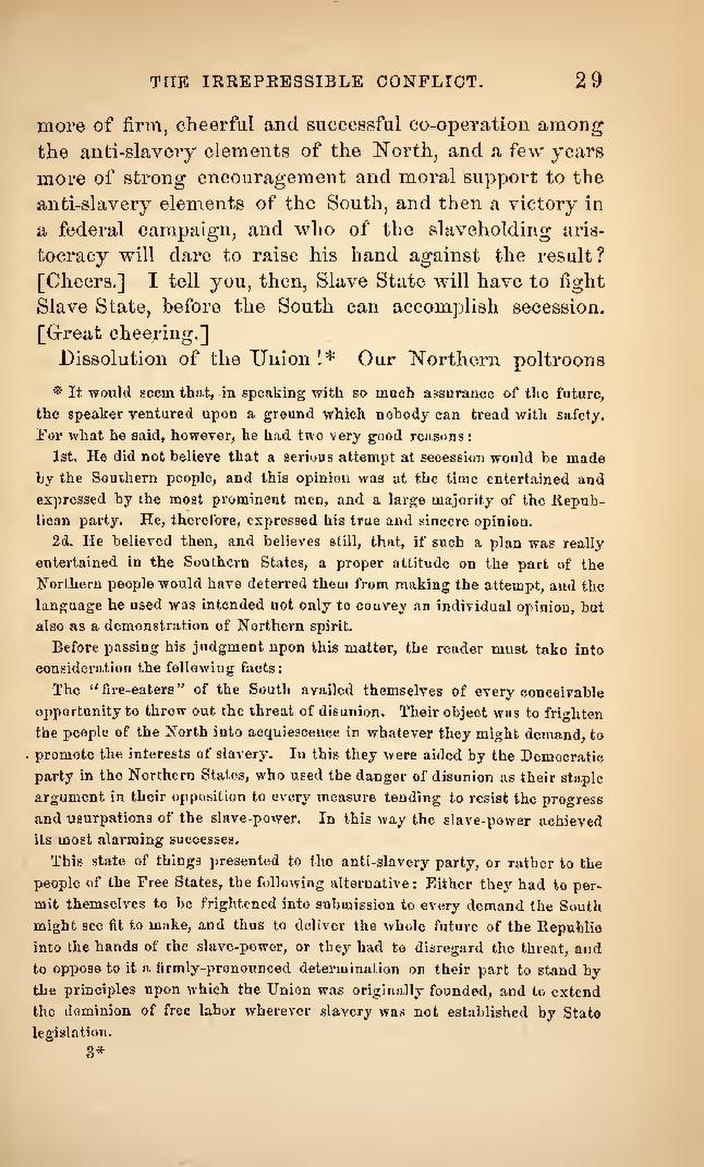more of firm, cheerful and successful co-operation among the anti-slavery elements of the North, and a few years more of strong encouragement and moral support to the anti-slavery elements of the South, and then a victory in a federal campaign, and who of the slaveholding aristocracy will dare to raise his hand against the result? [Cheers.] I tell you, then, Slave State will have to fight Slave State, before the South can accomplish secession. [Great cheering.]
Dissolution of the Union![1] Our Northern poltroons
- ↑
It would seem that, in speaking with so much assurance of the future,
the speaker ventured upon a ground which nobody can tread with safety.
For what he said, however, he had two very good reasons:
1st. He did not believe that a serious attempt at secession would be made by the Southern people, and this opinion was at the time entertained and expressed by the most prominent men, and a large majority of the Republican party. He, therefore, expressed his true and sincere opinion.
2d. He believed then, and believes still, that, if such a plan was really entertained in the Southern States, a proper attitude on the part of the Northern people would have deterred them from making the attempt, and the language he used was intended not only to convey an individual opinion, but also as demonstration of Northern spirit.
Before passing his judgment upon this matter, the reader must take into consideration the following facts:
The “fire-eaters” of the South availed themselves of every conceivable opportunity to throw out the threat of disunion. Their object was to frighten the people of the North into acquiescence in whatever they might demand, to promote the interests of slavery. In this they were aided by the Democratic party in the Northern States, who used the danger of disunion as their staple argument in their opposition to every measure tending to resist the progress and usurpations of the slave-power. In this way the slave-power achieved its most alarming successes.
This state of things presented to the anti-slavery party, or rather to the people of the Free States, the following alternative: Either they had to permit themselves to be frightened into submission to every demand the South might see fit to make, and thus to deliver the whole future of the Republic into the hands of the slave-power, or they had to disregard the threat, and to oppose to it a firmly-pronounced determination on their part to stand by the principles upon which the Union was originally founded, and to extend the dominion of free labor wherever slavery was not established by State legislation.
